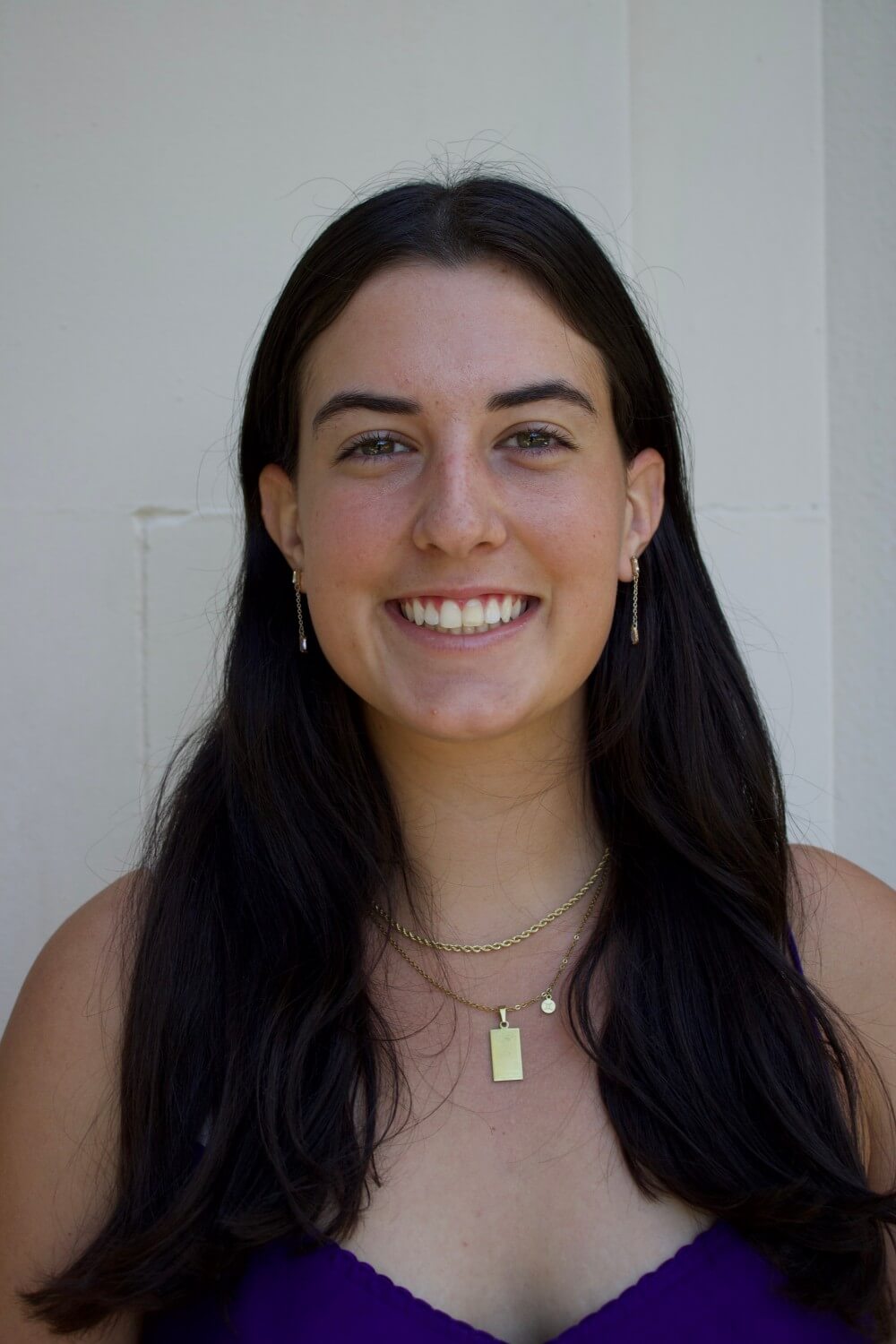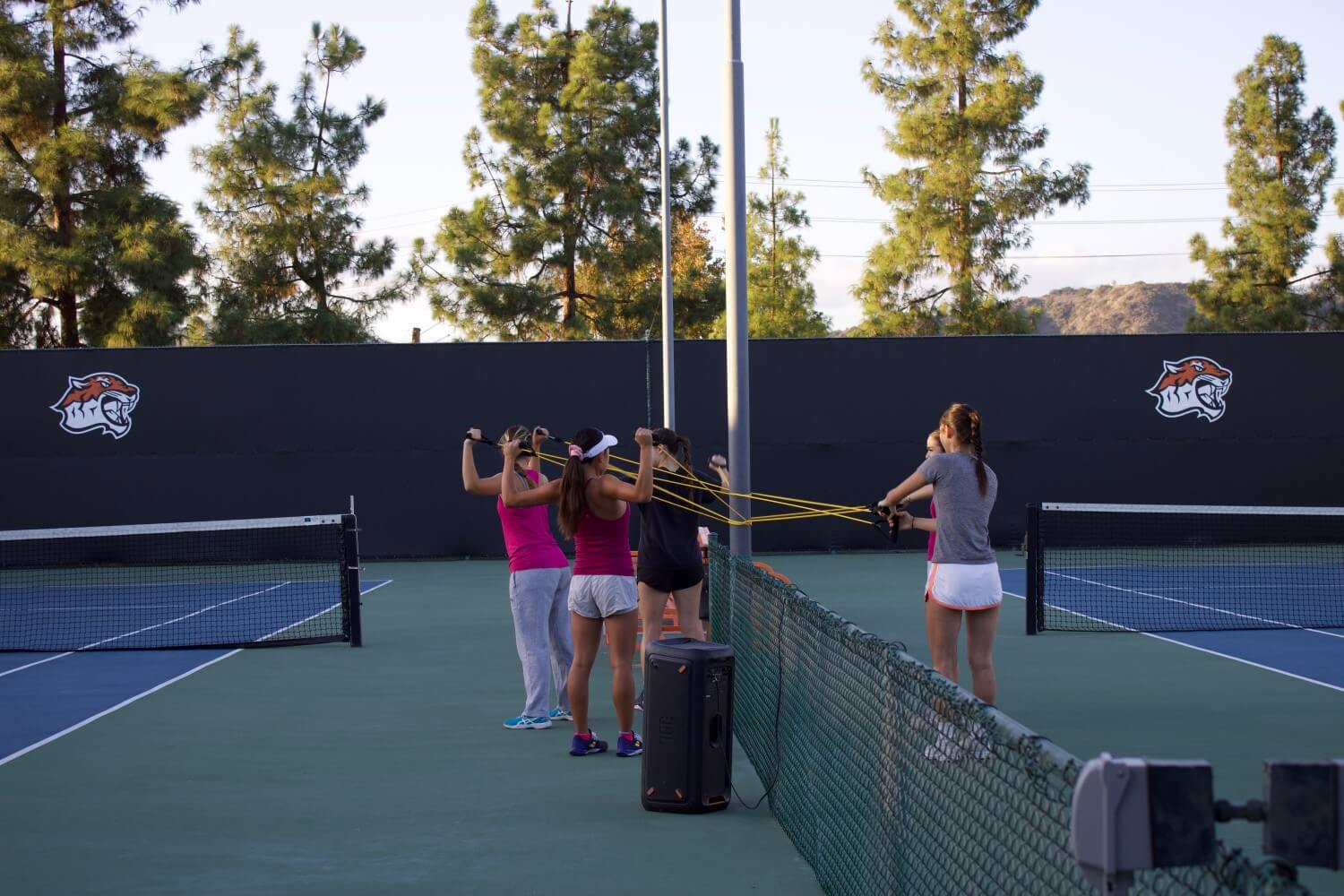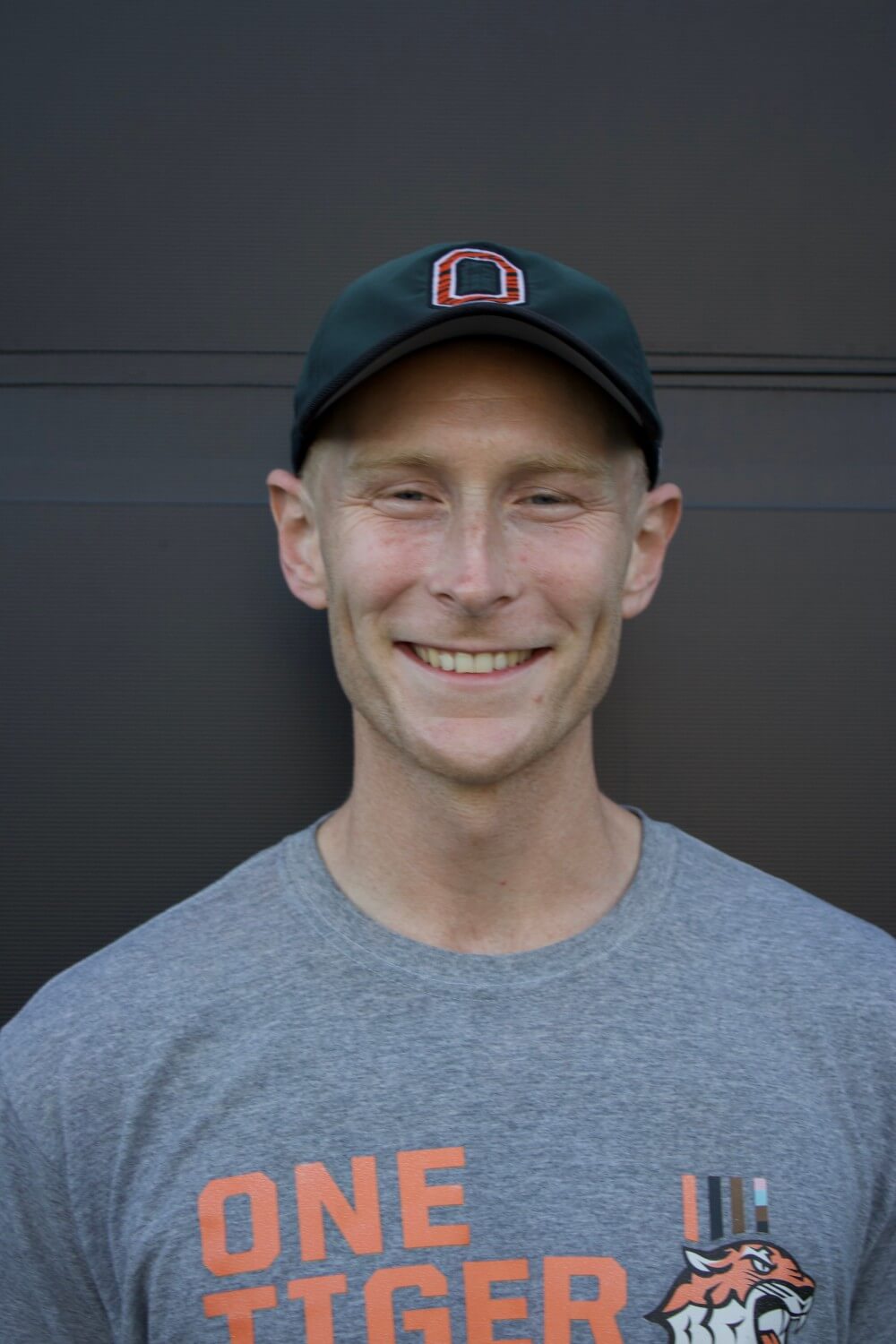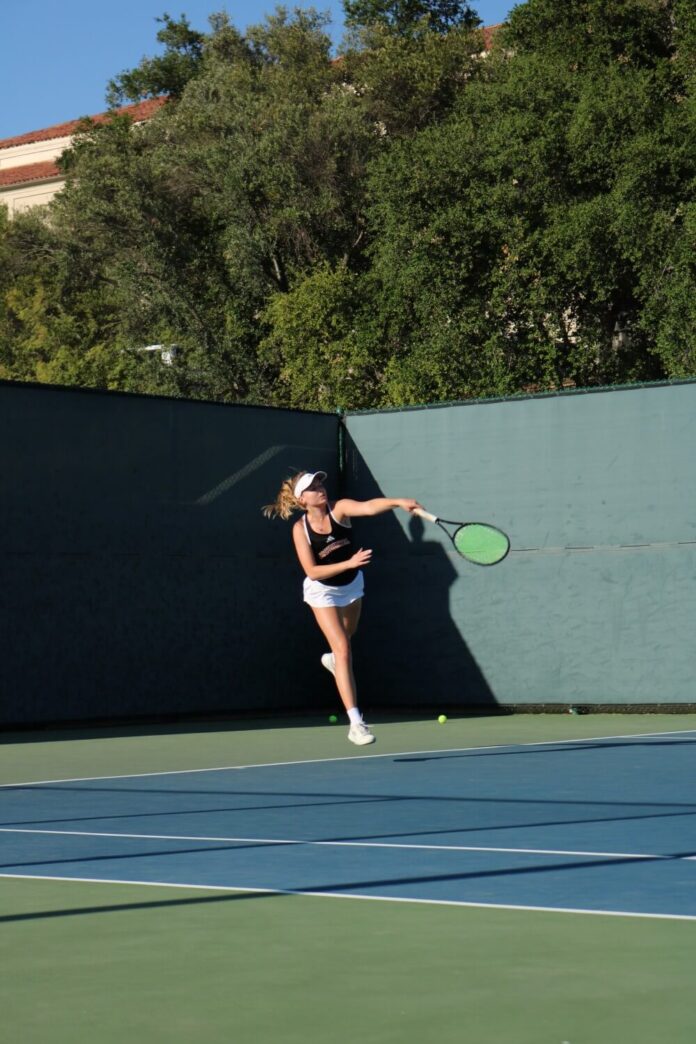Doubles partners Greta Nagy (sophomore) and Elina Shalaev (junior) secured a spot in the Intercollegiate Tennis Association (ITA) Cup in Rome, Georgia, Oct. 16-19 after placing second at the ITA Division III West Regional Tournament early in October, according to women’s tennis head coach Stephen Perkins. The duo was the first Occidental doubles team to make it to the ITA Cup since 2008, according to the Oxy Athletics website.
The tournament was hosted at Rome Tennis Center, which opened in 2016 and has 57 courts in total. According to Shalaev, the courts were difficult to adjust to at first.
“It felt like the ball was flying slower, but when it bounced on the court it zoomed,” Shalaev said. “So, was it slow? Was it fast? No one really knows.”
In the round of 16, Nagy and Shalaev clinched a 6–3, 7–6 (3) win against Lauryn Douglas and Michaella Sullivan from Bethel University. Shalaev said the partners varied their strategy for the matchup.
“Our opponents were really good,” Shalaev said. “They didn’t miss anything, so it really came down to us making sure we played aggressively and did a lot at net.”

In the quarterfinals, Nagy and Shalaev claimed a 7–5, 6–3 win against Trinity Levy and Rosabella Andrade from Trinity University (Texas). According to Shalaev, her and Nagy had previously lost to Levy and Andrade and were excited for revenge.
“I think we went into the second round expecting that it was going to be a really tight match […] they had a lot of supporters on their side cheering for them,” Nagy said.
Nagy said their opponents frequently lobbed the ball, a technique where tennis players hit the ball high up in the air to disrupt the rhythm of a point. Perkins said Nagy and Shalaev made the necessary adjustments in response.
“I think they played smart and made some good adjustments and didn’t allow the other teams’ style to take them too far out of their own game,” Perkins said.
According to Nagy, they adapted to the other teams’ defensive style by taking more chances.
“We just had to come into the net and smack it,” Nagy said.

In the semifinals, Nagy and Shalaev lost 6–4, 3–6, [5–10] to Lia Melvin and Jay Xiao from Johns Hopkins University. Shalaev said Melvin and Xiao played differently than their other opponents.
“The semifinal match was very different from the other two because they were very strong hitters, as opposed to the other ones who were just very consistent,” Shalaev said. “It was also a lefty-righty matchup, so I think in the beginning the lefty kind of threw us off.”
Nagy said she felt every point was competitive.
“I think we started off a little slow, but then we worked our way back up and it was neck [and] neck until the end,” Nagy said.
According to Perkins, Melvin and Xiao started the second set strong and maintained their lead despite a comeback attempt from Nagy and Shalaev. Shalaev said while they lost the 10 point tiebreaker, it was a competitive match overall.
“It [all] came down to whoever won 10 points first,” Shalaev said.
Perkins said he was proud of Nagy and Shalaev’s performance at the tournament.
“I think [this tournament] shows what they’re capable of because they just competed with the 16 best teams in the country,” Perkins said. “There wasn’t one team I think they wouldn’t be able to play with and have a good shot at beating.”

Shalaev said it felt good to be the underdogs at the tournament. She also said they were the only team in the semifinals ranked outside the NCAA DIII ITA Top 25. Nagy said their performance showed them they were better than they previously thought.
“It was a good feeling to have the hard work pay off,” Nagy said.
According to Nagy, she and Shalaev received support from their teammates and coaches while at the tournament.
“The feedback from our teammates was really good,” Nagy said. “They were supporting us through our group chat and so were the coaches […] and the athletic directors — they were all rooting for us.”
Shalaev said the tournament reminded her what’s most important in tennis.
“It’s a lot about the actual [skill] level, but it’s also a lot about who wants it more — the determination and resilience behind it,” Shalaev said. “This tournament taught us a lot.”
Contact Nick Dobbs at ndobbs@oxy.edu
![]()































